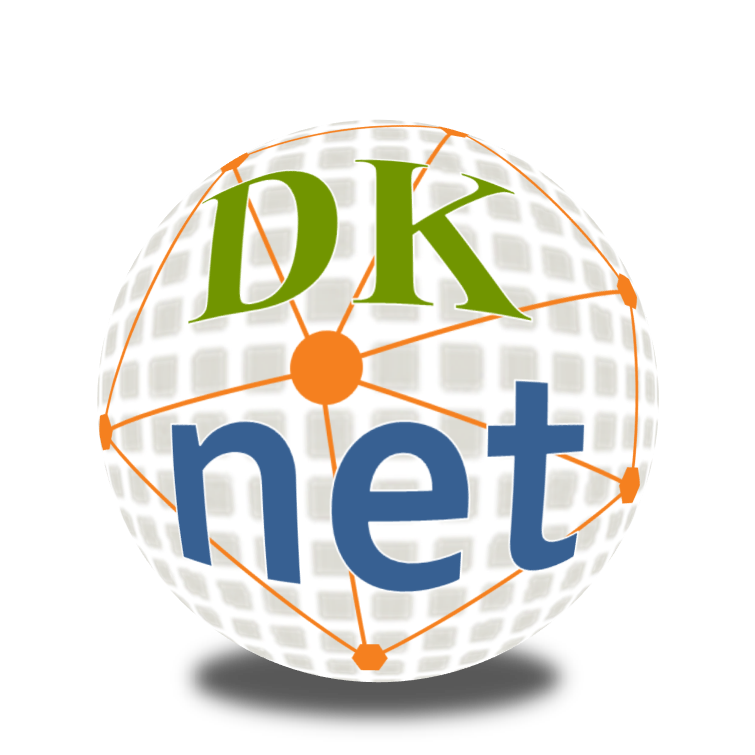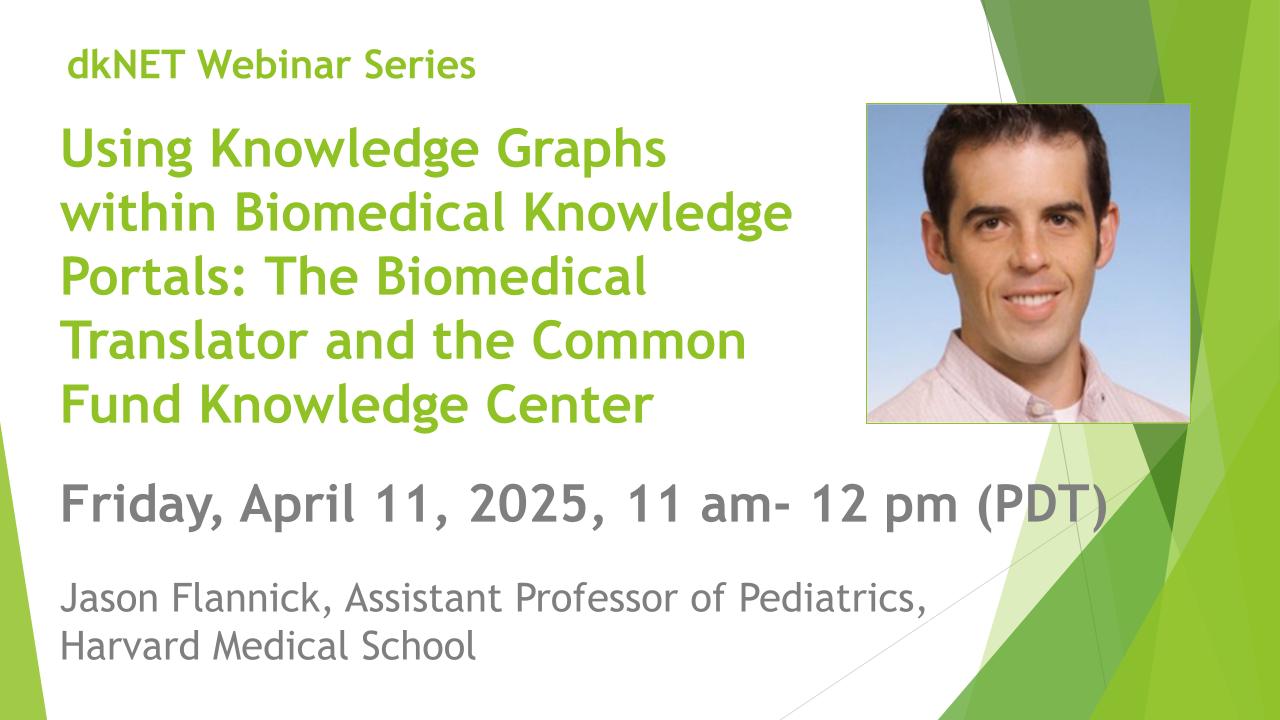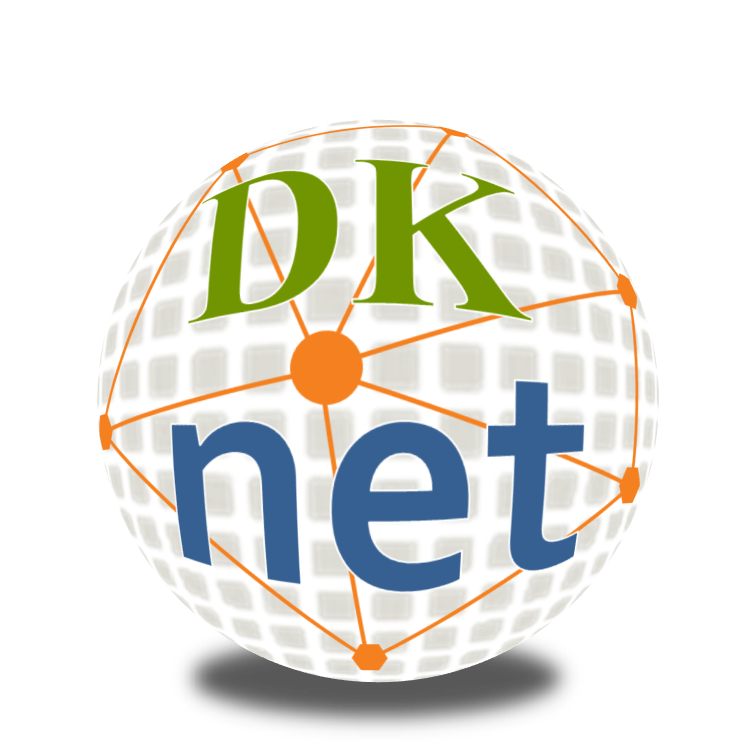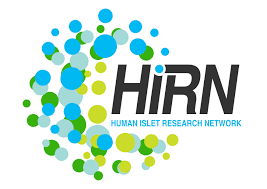dkNET community events and announcements in November, 2019
- 03:57pm November 6, 2019
- Ko-Wei Lin
Dear dkNET Community,
dkNET provides updates on activities of interest to the NIDDK-supported community. You could keep up to date on these activities through our Twitter feed @dkNET_info, through our Community Calendar, or through dkNET e-mail list. If you have an event or funding opportunities you'd like to advertise, please contact us info_at_dknet.org.
dkNET News
1. New features at Resource Reports: Based on the feedback from users, we have added these new features to make it easier for users to connect to Authentication Reports from Resource Reports: (1) Add cell lines or antibodies to Authentication Reports directly from Resource Reports (2) Easy access to Authentication Reports service from Resource Reports. Check out these new features at the dkNET blog: https://dknet.org/about/blog/1968
2. New resources at Resource Reports: Viral vectors, such as AAV, Lentivirus, and Adenovirus from Addgene are now with Research Resource Identifiers (RRIDs). We have included these resources at dkNET Resource Reports. You can find these resources and track these resources at dkNET!
3. Join dkNET Webinar: The Signaling Pathways Project, an integrated 'omics knowledgebase for mammalian cellular signaling pathways on Friday, November 22, 2019 at 11am PST. Webinar dial-in information: https://dknet.org/about/blog/1971
4. More than 117 research tools have been added this month, including:
- miRBase (RRID:SCR_017497) is a central online repository for microRNA nomenclature, sequence data, annotation, and target prediction. It contains a collection of published miRNA sequences and annotation.
- miRanda (RRID:SCR_017496) is a comprehensive resource of microRNA target predictions and expression profiles. It is used for whole genome prediction of miRNA target genes. For each miRNA, target genes are selected on basis of sequence complementarity using position weighted local alignment algorithm, free energies of RNA-RNA duplexes, and conservation of target sites in related genomes. It provides information about set of genes potentially regulated by particular microRNA, co-occurrence of predicted target sites for multiple microRNAs in mRNA and microRNA expression profiles in tissues. Users are allowed to customize algorithm, numerical parameters, and position-specific rules.
- Phenotypes and Mutant Alleles (RRID:SCR_017523) enables comparative phenotype analysis, searches for human disease models, and hypothesis generation by providing access to spontaneous, induced, and genetically engineered mutations and their strain-specific phenotypes.
- Gene Expression Database (RRID:SCR_017529) contains a collection of gene expression information during mouse development in MGI. GXD has developed RNA-Seq and Microarray Experiment Search to find specific mouse expression studies in ArrayExpress and GEO. It is based on standardized metadata annotations. Users can specify age, anatomical structure, mutant alleles, strain and sex of samples of interest as well as experiment study type and key parameters.
- 3D Genome (RRID:SCR_017525) is a Genome Browser for study of 3D genome organization and gene regulation and data visualization. It is used to visualizing chromatin interaction data, browse other omics data such as ChIP-Seq or RNA-Seq for the same genomic region, and gain a complete view of both regulatory landscape and 3D genome structure for any given gene.
- Deep Blue Epigenomic Data Server (RRID:SCR_017490) is a central data access hub for large collections of epigenomic data. It organizes data from different sources using controlled vocabularies and ontologies. It is a data server for storing, organizing, searching, retrieving genomic and epigenomic data, handling associated metadata, and performing different types of analysis.
- Human Mouse Disease Connection (RRID:SCR_017522) contains a collection of published and potential mouse models of human disease, the discovery of candidate genes and investigation of phenotypic similarity between mouse models and human patients. Mouse mutation, and phenotype and disease model data from Mouse Genome Informatics database are integrated with human gene to disease relationships from the National Center for Biotechnology Information and Online Mendelian Inheritance in Man and human disease to phenotype relationships from the Human Phenotype Ontology.
Events in November, 2019
Nov. 01, 2019
Registration Deadline: Sensory Nutrition and Disease Workshop
Many of our most serious and intractable health problems—including obesity, type 2 diabetes, hypertension, heart disease, and cancer—are linked to what we choose to eat and drink. What we choose to eat and drink is driven largely by the sensory properties of food: taste, smell, and texture. As molecular tools in model organisms become increasingly sophisticated, how can this new information be translated to testable hypotheses to the betterment of human health.
Location: Bethesda, MD, USA
More information: https://www.niddk.nih.gov/news/meetings-workshops/2019/sensory-nutrition-disease-workshop
Abstract Deadline: ENDO 2020
With a long-standing reputation for high-quality clinical, basic, and translational programing, ENDO provides a unique opportunity for you to gain further knowledge not only in your area of specialty, but also in other related areas. This year’s program features outstanding plenaries, enhanced scientific and clinical knowledge, the latest clinical practice guidelines, and exposure to new techniques and methodology. Attend ENDO 2020 to take advantage of unparalleled opportunities for collaboration. Connect with thought leaders in the field, exchange ideas and information, earn CME credits, and gain insights from the latest trends and advancements in hormone health.
Location: San Francisco, CA, USA
More information: https://www.endocrine.org/endo2020
Nov. 07, 2019
JAX Webinar: Generating Better Mouse Models for Your Research: Approaches and Considerations
Do you need a unique mouse model that does not exist or is not available? Mouse model generation is more accessible and cost-effective than ever, but the number of options of background strains and techniques adds some complexity to the process. During this webinar, we will discuss approaches and considerations for mouse model generation, including: (1) Strategies to generate indel, knockout, and knockin mutations using CRISPR/Cas9, transgenics, and ES cells (2) Choosing the optimal genetic background for your new mouse model (3) Selecting founder mice, breeding strategies, and phenotyping (4) Streamlining new model generation using The Jackson Laboratory’s expertise and services.
More information: https://jackson.jax.org/JAX-Webinar-11072019.html
Nov. 08, 2019
NIDDK Meeting Registration Deadline: Collaborating for the Advancement of Interdisciplinary Research in Benign Urology
The purpose of the CAIRIBU (Collaborating for the Advancement of Interdisciplinary Research in Benign Urology) meeting is to bring together the Directors of the NIDDK U54 O?Brien Urology Centers and their research teams, the Directors and research teams of the P20 Developmental Centers for Interdisciplinary Research in Benign Urology, and the Directors for the Multidisciplinary K12 Urologic Research (KURe) and Urologic Epidemiology (KEpi) Career Development Program and their scholars. This meeting will promote interactions between Centers and Programs, the development and sharing of research resources, and the advancement of students and early investigators in the field of benign urology research.
Location: Kansas City, MO, USA
More information: https://www.niddk.nih.gov/news/meetings-workshops/2019/collaborating-advancement-interdisciplinary-research-benign-urology
NIDDK Sensory Nutrition and Disease Workshop
Many of our most serious and intractable health problems—including obesity, type 2 diabetes, hypertension, heart disease, and cancer—are linked to what we choose to eat and drink. What we choose to eat and drink is driven largely by the sensory properties of food: taste, smell, and texture. As molecular tools in model organisms become increasingly sophisticated, how can this new information be translated to testable hypotheses to the betterment of human health?
Location: Bethesda, MD, USA
More information: https://www.niddk.nih.gov/news/meetings-workshops/2019/sensory-nutrition-disease-workshop
Nov. 14-15, 2019
NIDDK NMRI Mid-West Regional Meeting
More than 300 researchers have participated in NMRI workshops in the past decade, and approximately 100 are active members. The success of the NMRI, a network that is “owned” by its members and supported by the NIDDK, begins with the dedication of senior investigators who mentor and serve as role models for junior investigators. The participation of active members and the recruitment of new members is a primary reason for the Network’s success in the past and the reason for confidence that it will continue to grow in the future.
Location: Iowa City, IA, USA
More information: https://www.niddk.nih.gov/news/meetings-workshops/2019/nmri-midwest-meeting-2019
Nov. 14, 2019
Abstract Submission Deadline: Experimental Biology 2020
Experimental Biology (EB) is the annual meeting of five societies bringing together more than 12,000 scientists and 25 guest societies in one interdisciplinary community. EB 2020 will be held from April 4–7, 2020, at the San Diego Convention Center in San Diego, California. EB is the place to explore the latest cutting edge science in anatomy, biochemistry and molecular biology, investigative pathology, pharmacology and physiology. EB welcomes everyone with interest in advancing the latest research impacting life sciences. Attendees represent scientists from academic institutions, government agencies, non-profit organizations and industry. This multidisciplinary, scientific meeting features plenary lectures, workshops, symposia, posters presentations, on-site career services and exhibits spotlighting products and services integral to this professional community.
Location: San Diego, CA, USA
More information: https://experimentalbiology.org/2020/home.aspx
Nov. 14, 2019
JAX Webinar: Introduction to Mice for Cancer Immunotherapy Research
Would you like to learn about using mouse models to develop novel cancer immunotherapies? During this webinar, we will provide an overview of mouse models and new humanized mouse platforms being used to improve the translational relevance of cancer immunotherapy research. Join us as we discuss: (1) Current approaches for cancer immunotherapy (2) Types of cancer immunotherapeutics that have been characterized and validated in mouse models (3) Humanized mouse models as an innovative platform for immuno-oncology drug development.
More information: https://jackson.jax.org/JAX-Webinar-11142019.html
Nov. 16, 2019
Frontiers in Diabetes Research: Leveraging Technical Innovation for Current and Future Care of the Diabetic Patient
This one-day program at the Naomi Berrie Diabetes Center at Columbia University is designed for research scientists, clinicians and students with an interest in the latest technical innovations that may impact current and future care of patients with diabetes. Specifically, this conference will discuss recent methodologic advances that enable more precise animal and ex vivo disease modeling (using stem cells), which coupled with integration of genomic data, should enable identification of new therapeutic targets to benefit diabetic patients. Additional focus areas will include novel insulin preparations, in vivo beta cell imaging techniques, new glucose sensors, and integrated systems that allow greater communication between glucose sensors and insulin pumps.
Location: Naomi Berrie Diabetes Center at Columbia University
More information: https://collectedmed.com/index.php/article/article/course_preview/category/12/1025/1039
Nov. 19, 2019
Keystone Symposia Scholarship Application Deadline: A Gut-Systemic Perspective for Metabolic Disease
Changes of the microbiome and nutrient sensing within the gut alter whole-body glucose and energy homeostasis. The underlying mechanism and the therapeutic potential of such metabolic regulation in diabetes, obesity, and related disorders remain largely unexplored. This Keystone Symposia conference aims to progressively highlight a spectrum of basic and translational investigations and discoveries that first focus on microbial-host interaction and nutrient sensing mechanisms. Other sessions focus on the interaction between the gut microbiome and nutrient sensing pathways as well as how these pathways could be targeted by small molecules and/or immunological responses within the gut to impact systemic organs and whole-body metabolic homeostasis. In summary, we anticipate this conference will foster interactions between the basic, translational, clinical and pharmaceutical researchers and promote collaborative work aimed at realizing the therapeutic potential of targeting the gut microbiota-nutrient sensing axis for the treatment of metabolic disorders.
Location: Santa Fe, NM, USA
More information: http://www.keystonesymposia.org/index.cfm?e=Web.Meeting.Summary&meetingid=1721&subTab=summary
Nov. 21, 2019
Abstract Deadline: Keystone Symposia - Obesity and NAFLD: Mechanisms and Therapeutics (B3)
Energy metabolism underlies all facets of human health. Now, with rates of obesity and nonalcoholic fatty liver disease (NAFLD) surging, understanding how energy metabolism is governed is of the utmost interest. Halting the progression of NAFLD into nonalcoholic steatohepatitis (NASH) is considered an unmet need in human health. At this meeting, we will discuss regulatory elements underlying obesity and NAFLD, and the metabolic underpinnings of NASH. We will focus on metabolites, hormones, and cellular signaling pathways. We will also examine the leading edge of therapeutic approaches for obesity and NASH. We will bring together scientists and physicians specializing in basic, translational, and clinical research, as well as industry scientists, to create a robust exchange of ideas on how to move the field forward.
Location: Banff, AB, Canada
More information: http://www.keystonesymposia.org/index.cfm?e=web.meeting.program&meetingid=1698
dkNET Webinar: The Signaling Pathways Project, an integrated 'omics knowledgebase fro mammalian cellular signaling pathways
In this webinar, we will introduce dkNET Hypothesis Center - the Signaling Pathways Project (SPP) knowledgebase, a hub for big data and hypothesis generation that will allow researchers to extract information across different transcriptomic and ChIP-Seq datasets. We will demonstrate several SPP use cases, as well as take questions from the audience about specific aspects of SPP. Join us on Friday, November 22, 2019 to learn how SPP can help with your research!
More information: https://dknet.org/about/blog/1973
Funding opportunities information and deadlines in November, 2019
Nov. 03, 2019
NIDDK Funding Opportunity Letter of Intent Due Date: Catalyst Award In Diabetes, Endocrinology and Metabolic Diseases (DP1 Clinical Trial Not Allowed)
The Catalyst Award in Diabetes, Endocrinology and Metabolic Diseases (Catalyst-DEMD) is designed to complement NIDDK's traditional, investigator-initiated grant programs by supporting individual scientists who propose pioneering and transformational studies in DEMD topic areas. Applications should be focused on major scientific challenges, and have the potential to produce an unusually high impact on diseases and conditions that are central to the mission of NIDDK's Division of Diabetes, Endocrinology and Metabolic Diseases. To be considered responsive to this initiative, the proposed research should reflect new and novel scientific directions that are distinct from concepts and approaches being pursued in the investigator’s research program or elsewhere.
More information: https://dknet.org/about/dknetnews/1898
Nov. 03, 2019
NIDDK Funding Opportunity Letter of Intent Due Date: Understanding the Functional Contributions and Mechanisms of Type 2 Diabetes Disease-associated Variants (UM1 Clinical Trial Not Allowed)
This Funding Opportunity Announcement (FOA) encourages applications from integrative teams and individual investigators for large-scale complex multi-disciplinary Functional Genomics Projects (FGPs) to determine the contributions and mechanisms underlying the contribution of risk-associated variants and their downstream effector transcripts for type 2 diabetes (T2D). The intent is to generate knowledge and tools to enable the identification of putative biomarkers and therapeutic targets by future efforts. Genome-wide association studies (GWAS) and other genomic studies of T2D and its complications have found many variants that are statistically associated with disease risk, disease protection, progression to complications, or other traits. However, such studies do not show which variants in genomic elements cause these effects or how they result in differences in function. Applications submitted to this RFA will systematically identify causal variants and effector transcripts associated with all known T2D risk variants, verify the role of downstream effector transcripts, build network models that explain their role(s) in T2D and its complications, and identify key readouts and modulation points in these networks. Data, tools, and reagents generated by these projects will be released rapidly to facilitate more in-depth study by the broad scientific community. Awardees to this announcement will form a Consortium with the Accelerating Medicines Partnership in Type 2 Diabetes Knowledge Portal awardee (AMP T2D KP; RFA-DK-19-505) to accomplish collective goals.
More information: https://grants.nih.gov/grants/guide/rfa-files/RFA-DK-19-012.html
Nov. 07, 2019
NIDDK Funding Opportunity Application Due Date: (Re)Building a Kidney (UC2 Clinical Trial Not Allowed) RFA
This FOA invites new applications for the (Re)Building a Kidney (RBK) Consortium (www.rebuildingakidney.org) that will contribute to the development and testing of advanced therapies for treatment of kidney injuries or diseases. Specifically, the goal of the RBK is to improve or restore kidney function by either of two distinct approaches: (1) enhancement of endogenous productive kidney repair/regeneration by small molecules, proteins, or engraftment of cells, organoids, etc., or (2) building functional replacement kidney tissue ex vivo for transplantation. Both approaches will require diverse scientific expertise drawn from several disciplines including, but not limited to, developmental and cellular biology, productive repair/regeneration post injury, stem and progenitor cell biology, tissue engineering, renal physiology, nephrology, and the use of model organisms. Thus, it is expected that each application will assemble a research team of investigators with complementary expertise to address the goal of the RBK. To maximize scientific exchange, the RBK will continue to include a Data Hub to facilitate curation and sharing of data, resources, tools, methods, etc. within the consortium and with the broader research community.
More information: https://dknet.org/about/dknetnews/1896
Nov. 07, 2019
NIDDK Funding Opportunity Application Due Date: Adipogenesis, Adipocyte Function and Obesity Following HIV Infection, Antiretroviral Therapy, or Pre-Exposure Prophylaxis (R01 Clinical Trial Optional)
The prevalence of obesity is increasing in people with HIV (PWH), contributing to multiple complications associated with this condition. There is mounting evidence that there are unique mechanisms contributing to the development of obesity in PWH versus people without HIV. Furthermore, the biology of the adipocytes might be altered in overweight or obese PWH versus overweight or obese people without HIV. This FOA seeks applications to elucidate the underlying mechanisms of how HIV and antiretroviral drugs used for therapy or pre-exposure prophylaxis contribute to the development of obesity and alter adipocyte and adipose tissue function as well as the effects of these processes on metabolic and physiological processes within the mission of the National Institute of Diabetes and Digestive and Kidney Diseases (NIDDK).
More information: https://www.niddk.nih.gov/research-funding/current-opportunities/rfa-dk-19-008
NIDDK Funding Opportunity Application Due Date: Early-Stage Preclinical Validation of Therapeutic Leads for Diseases of Interest to the NIDDK (R01 Clinical Trial Not Allowed)
The goal of this Funding Opportunity Announcement (FOA) is to support translational research that provides strong justification for later-phase therapeutics discovery and development efforts in health-related outcomes relevant to the National Institute of Diabetes and Digestive and Kidney Diseases. This includes outcomes relevant to obesity, diabetes and related aspects of endocrinology and metabolism, digestive diseases, liver diseases, nutrition, kidney and urological diseases, and hematology. Additional information concerning programmatic areas at NIDDK is available a www.niddk.nih.gov/research-funding/research-programs/Pages/default.aspx and applicants are strongly encouraged to discuss research priorities with the Scientific Contact.
More information: https://www.niddk.nih.gov/research-funding/current-opportunities/par-19-294





